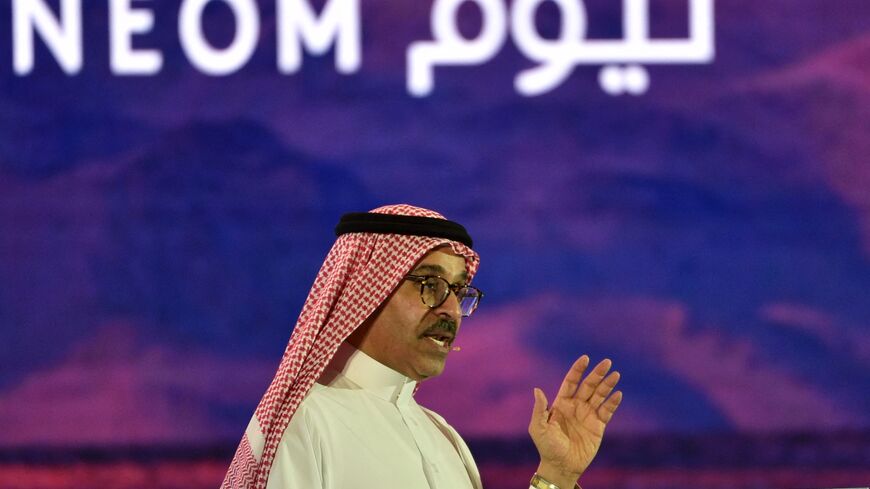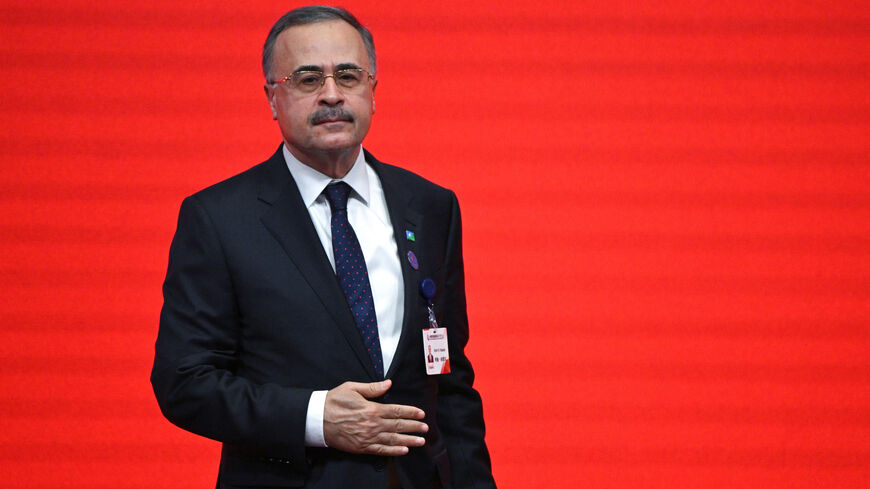Saudi Arabia 'conservative' on oil revenue as it pares back Vision 2030 plans
Mohammed Al-Jaadan warned that being a resource-rich country was a curse as well as a blessing because being dependent on one commodity such as oil can hold a country "hostage" to the volatility of global demand and prices.

Saudi Arabia remains “conservative” when it is forecasting its revenues from oil, its main commodity, the country's finance minister, Mohammed Al-Jaadan, said Tuesday after the kingdom had to pare back some of its Vision 2030 plans due to crude prices remaining under $100 a barrel.
The price of WTI Crude, a global benchmark, was hovering around $77.77 per barrel Tuesday early afternoon Eastern Time. It hasn't reached triple digits since summer 2022. A sluggish demand from China, the world's and Saudi Arabia's biggest crude customer, has meant that global demand has been lower than anticipated, keeping prices low.
Saudi Crown Prince Mohammed bin Salman's Vision 2030 plan is to diversify the kingdom's economy away from a reliance on oil by investing in other sectors such as green energy, technology and tourism. Saudi Arabia is currently the world's largest crude exporter, and its fast-growing economy has been hit by lower oil prices globally. Some 63% of the kingdom's revenues come from oil.
Speaking at the Qatar Economic Forum in Doha on Tuesday, Jaadan warned that being a resource-rich country was a curse as well as a blessing because being dependent on one commodity such as oil can hold a country "hostage" to the volatility of global demand and prices.
"We are not complacent; obviously we need to push through the momentum of reforming and transforming our economy, but we see the results," he added.
Gigaprojects such as Neom and The Line are central to Saudi Arabia's Vision 2030 plan. Last month, reports emerged that the government had scaled back its medium-term ambition for Neom, the $1.5 trillion green megacity project in the middle of the desert, of which The Line is its most significant subproject. Authorities had originally planned for 1.5 million residents to live in The Line but scaled back its ambitions to around 300,000. The low oil price is one of the key reasons for this downward revision, analysts say.
Asked by the moderator whether Saudi Arabia can deliver on those gigaproject plans if the price of oil falls further, Jaadan said, “We have actually been very conservative in our assumptions as far as our oil revenues."
For example, he said Saudi Arabia closed 2023 with oil revenues higher than the government budget projections from the beginning of the year. He said that this was despite the fact oil prices were down around 20% and production was down by 17%.
“We are very conservative, so I am quite comfortable for two reasons: One is we diversified our revenues — 37% [of our GDP] is coming from non-oil, and we are very conservative in our projections and therefore our plans with how the oil revenue will cover that expenditure," he added.
The minister said his country's high spending is helping to grow the non-oil economy, but he warned Saudi Arabia needs to be careful about its investments “overheating” — which could cause inflation to accelerate — and “economic leakages.”
“If you don’t allow your economy to catch up with your projects, basically what will happen is you’ll import a lot more,” Jadaan said. As a result, Saudi Arabia could lack the factories and other capacity needed to support its plans, according to the minister.
“So giving it more time is actually wise,” Jadaan said, adding that his country's private sector must be given "a breather" from further government investment so it can catch up.







